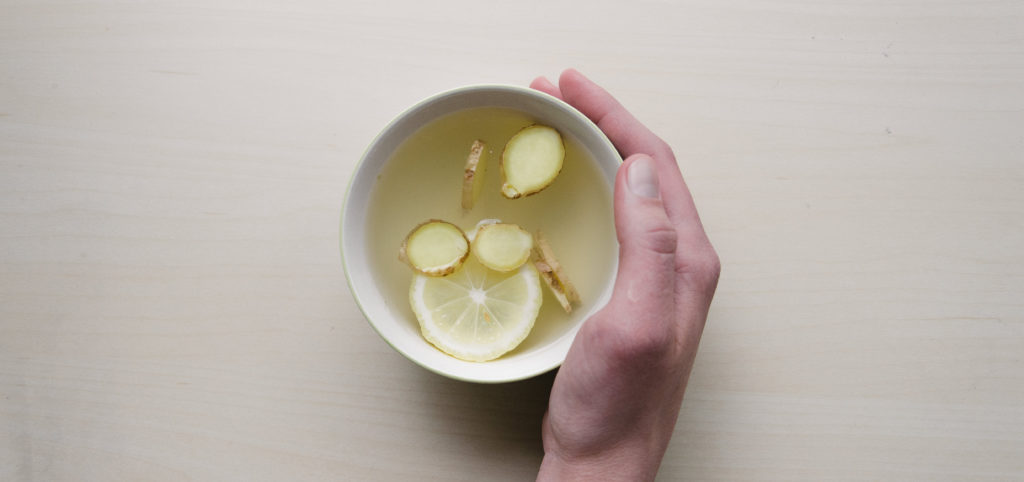Subtotal: $35.00
Women's Health
5 Things to Help with Morning Sickness
If you’re suffering from morning sickness, you’re not alone. Approximately 80% of all pregnant women suffer from morning sickness in one form or another1. Although not harmful to the baby, it is still an unwelcome side effect that may
- keep you at home or away from work,
- stop you from carrying out your daily activities, and
- present a generally miserable experience.
The exact cause of morning sickness remains unclear and could occur for many reasons. And even though the term is “morning” sickness, nausea sometimes happens all throughout the day. The term is a little deceiving as many women only expect to have it in the morning. Thankfully, morning sickness is usually mild and resolved by mid-pregnancy.
A small percentage of women have a much more severe version of morning sickness called Hyperemesis gravidarum. Unlike morning sickness, this can lead to dehydration and weight loss. Hyperemesis gravidarum does not go away easily and can have negative effects on the mother’s health and baby’s health1. However, only a minority of women have this version, the overwhelming majority have the ‘normal’ kind. Luckily, morning sickness can usually be controlled by many different methods and tactics.
1- Diet
Diet plays a huge role in morning sickness. Most women will find that specific foods will trigger their nausea. As a first step, avoid these triggers. Here are some general tips about meal planning2:
- Eat meals and snacks slowly and in small amounts every 1-2 hours to avoid a full stomach. Do not let yourself get too hungry or too full.
- Some may find that carbohydrate meals like soda crackers and dry toast may help.
- Women with nausea should eat before or as soon as they feel hungry to avoid an empty stomach, which can aggravate nausea.
- A snack before getting out of bed in the morning can be helpful
- Try to cut out caffeine and spicy or odorous foods. Also avoid those that are high in fat, acidic, or very sweet.
- Consider snacks/meals that are protein-dominant, salty, low-fat, bland, and/or dry. Some examples are nuts, pretzels, crackers, cereal, toast.
Fluids
- Fluids tend to be better tolerated if cold, clear, and carbonated or sour (i.e., ginger ale, lemonade, popsicles), and if taken in small amounts between meals.
- Aromatic therapies involving lemon, mint, or orange can also be useful
- Consume fluids at least 30 minutes before or after solid food to minimize the effect of a full stomach.
2- Avoid your triggers
It may sound obvious but this is one of the best ways to ease the symptoms of morning sickness. It is not only food that can trigger a bout of nausea and vomiting but things such as
- odors (like perfume),
- chemicals, or
- smoke2.
Heat, humidity, noise, and visual or physical motion (i.e., flickering lights, driving) can also act as a trigger2. If you look back at your episodes of morning sickness. You might notice a pattern where one or more of these things may have preceded the morning sickness. If so, try to avoid them.
3- Ginger
Using ginger is another possible method for easing the worst of your nausea and vomiting. In fact, many women swear by it.
Ginger has been used for thousands of years as a Chinese traditional medicine for its anti-nausea effect. Just as important, many clinical studies show that it is safe for pregnancy3.
If ginger is used, doctors recommend taking it via ginger containing foods like ginger
- lollipops,
- tea,
- candies,
- or supplements2.
For women considering other herbal remedies that contain ginger, be aware that most complementary and alternative medicines have not been studied for safety. If in doubt, ask your doctor first.
The nice thing about ginger is it is inexpensive and recognized as safe.
4- Vitamin B6
Research shows that taking vitamin B6 for morning sickness greatly improves nausea for many pregnant women4. Vitamin B6 (100 mg or less daily) has been shown to ease symptoms of morning sickness. Many healthcare providers recommend trying it first before trying other medicines5.
Vitamin B6 not only helps with nausea but has other benefits during pregnancy. It is thought that vitamin B6 may play a role in reducing preeclampsia and preterm birth6.
5- Acupuncture and acupressure
Acupuncture (P6 acupuncture) has been shown to be an effective non-medicinal alternative for morning sickness7. Research shows that Nei Guan acupuncture, aka P6-acupuncture, can be useful in treating nausea and vomiting of most causes.
Acupressure (P6 acupressure) is different than acupuncture but works on similar principles. Acupressure is like acupuncture without the needles. A popular (and safe) technique to help ease morning sickness is the use acupressure wristbands. These are bands worn around the wrist that apply pressure to specific points. Often they are used to ease motion sickness. You can find the acupressure bands at most drug stores and health food stores. They don’t require a prescription.
Both P6 acupuncture and P6 acupressure are natural remedies with roots in traditional Chinese medicine. Neither method has been shown to be harmful to the baby2. Though they don’t require a prescription, it’s best to first consult with your doctor, as with all things when pregnant2,8.
6- Prescription drugs
As a last resort if all other things fail and the morning sickness refuses to go away, speak to your doctor about prescription medications. Prescription drugs are usually avoided in early pregnancy, but there are a number of safe medications that can ease the worst of your symptoms.
SHOP PRENATAL+ TODAY
1) Quinla, J. D., & Hill, D. A. (2003). Nausea and vomiting of pregnancy. American family physician, 68(1), 121-128. Chicago. http://europepmc.org/abstract/med/12887118
2) Uptodate. Treatment and outcome of nausea and vomiting of pregnancy. Judith A Smith, PharmD, BCOP, CPHQ, FCCP, FISOPP, Jerrie S Refuerzo, MD,Susan M Ramin, MD. Last updated October 2016. https://www.uptodate.com/contents/treatment-and-outcome-of-nausea-and-vomiting-of-pregnancy?source=search_result&search=morning%20sickness&selectedTitle=1~130
3) Chittumma, P., Kaewkiattikun, K., & Wiriyasiriwach, B. (2007). Comparison of the effectiveness of ginger and vitamin B6 for treatment of nausea and vomiting in early pregnancy: a randomized double-blind controlled trial. JOURNAL-MEDICAL ASSOCIATION OF THAILAND, 90(1), 15. http://www.imuneksfarma.com/wp-content/uploads/2014/07/EME-5.pdf
4) WebMD. Vitamin B6 for Morning Sickness – Topic Overview. http://www.webmd.com/baby/tc/vitamins-b6-and-b12-for-morning-sickness-topic-overview
5) MedlinePlus. Morning Sickness. Review Date 11/19/2014. Updated by: Cynthia D. White, MD, Fellow American College of Obstetricians and Gynecologists, Group Health Cooperative, Bellevue, WA. Also reviewed by David Zieve, MD, MHA, Isla Ogilvie, PhD, and the A.D.A.M. Editorial team. https://medlineplus.gov/ency/patientinstructions/000604.htm
6) Salam RA, Zuberi NJ, Bhutta ZA. Pyridoxine (vitamin B6) supplementation during pregnancy or labour for maternal and neonatal outcomes. Cochrane Database Syst Rev 2015 Jun 3;6:CD000179.
7) Smith, C., Crowther, C., & Beilby, J. (2002). Acupuncture to treat nausea and vomiting in early pregnancy: a randomized controlled trial. Birth, 29(1), 1-9. https://www.ncbi.nlm.nih.gov/pubmed/11843784
8) Ezzo, J., Streitberger, K., & Schneider, A. (2006). Cochrane systematic reviews examine P6 acupuncture-point stimulation for nausea and vomiting. Journal of Alternative & Complementary Medicine, 12(5), 489-495. Chicago. https://www.ncbi.nlm.nih.gov/pubmed/16813514


 Forté Prenatal+ Supplement
Forté Prenatal+ Supplement 